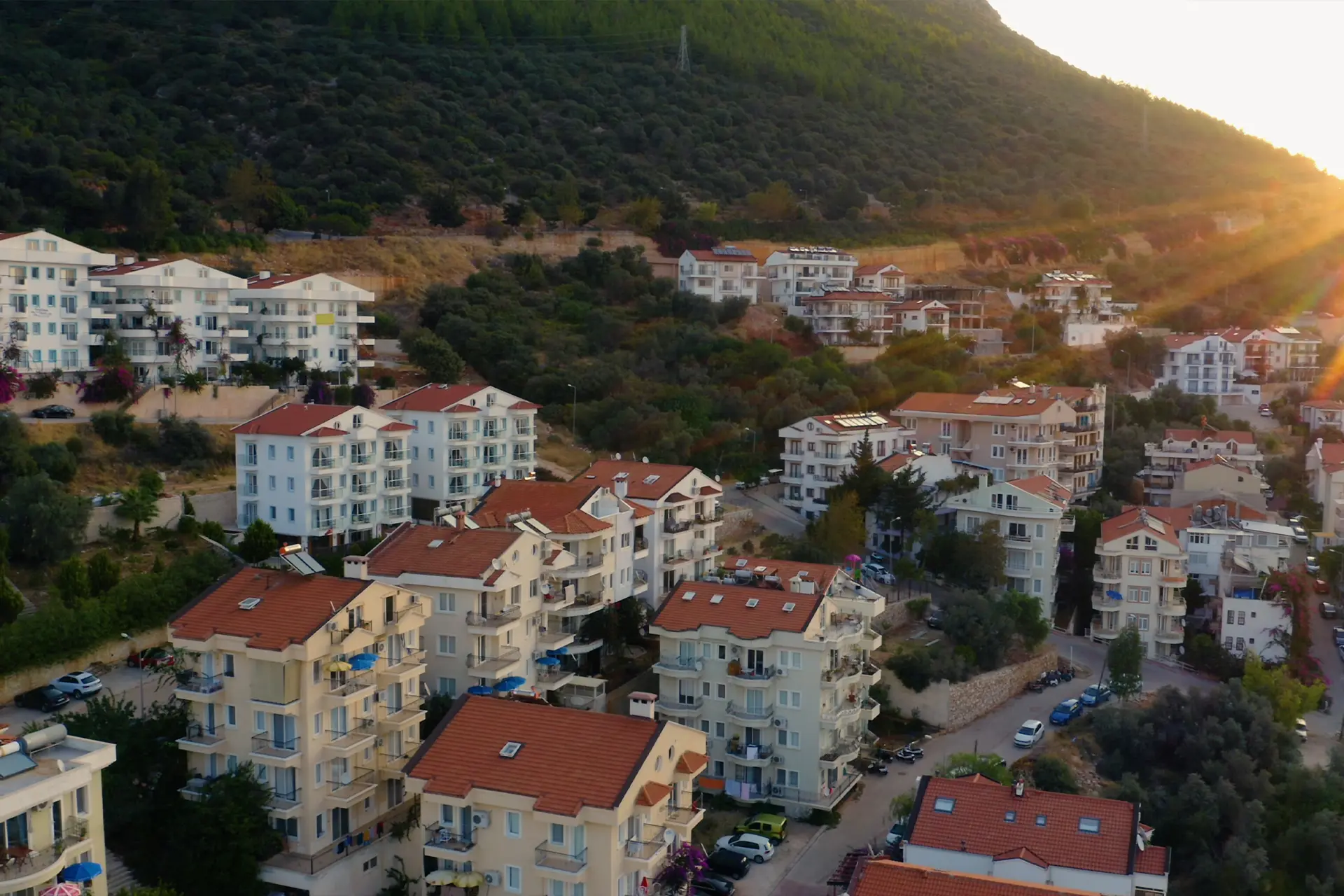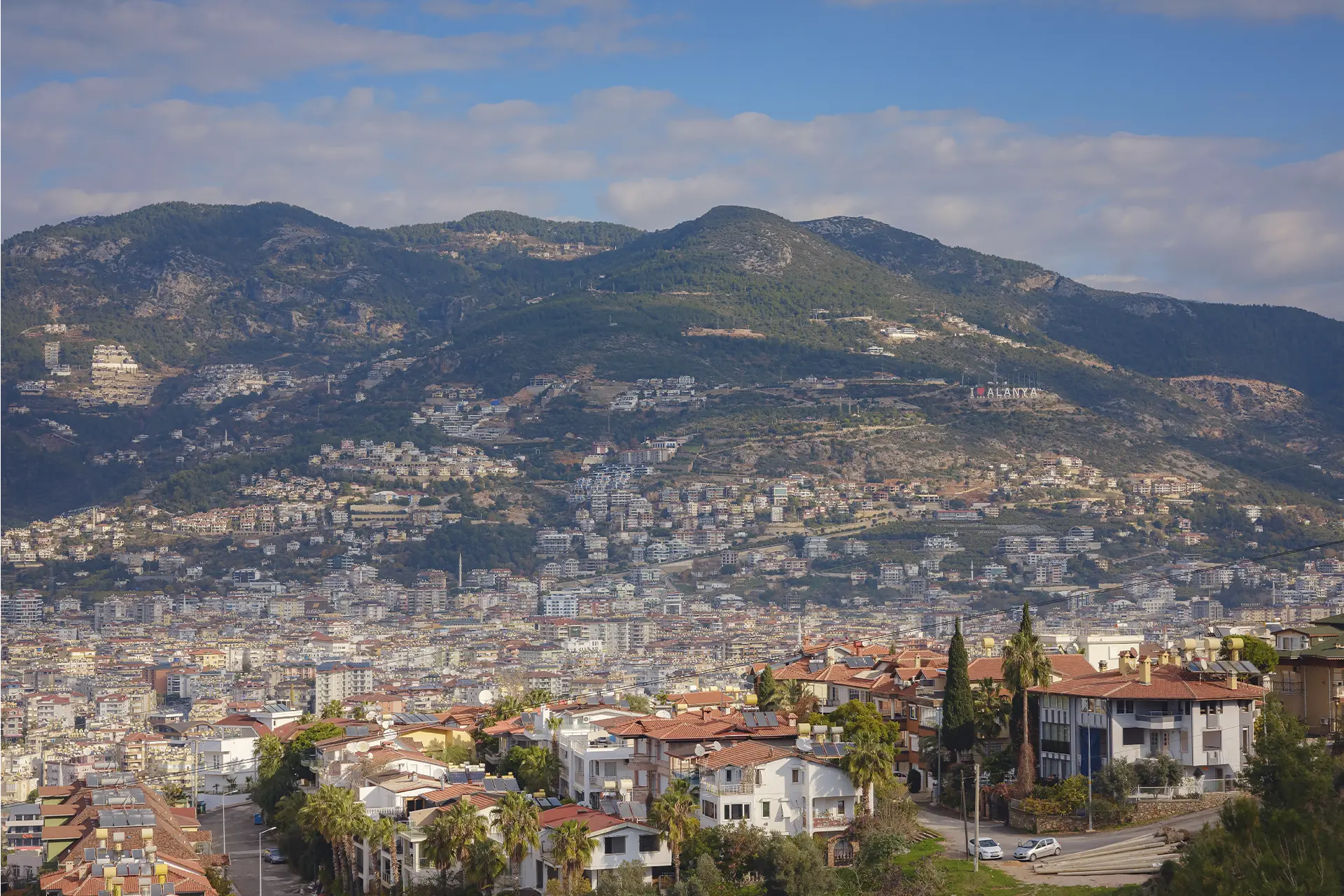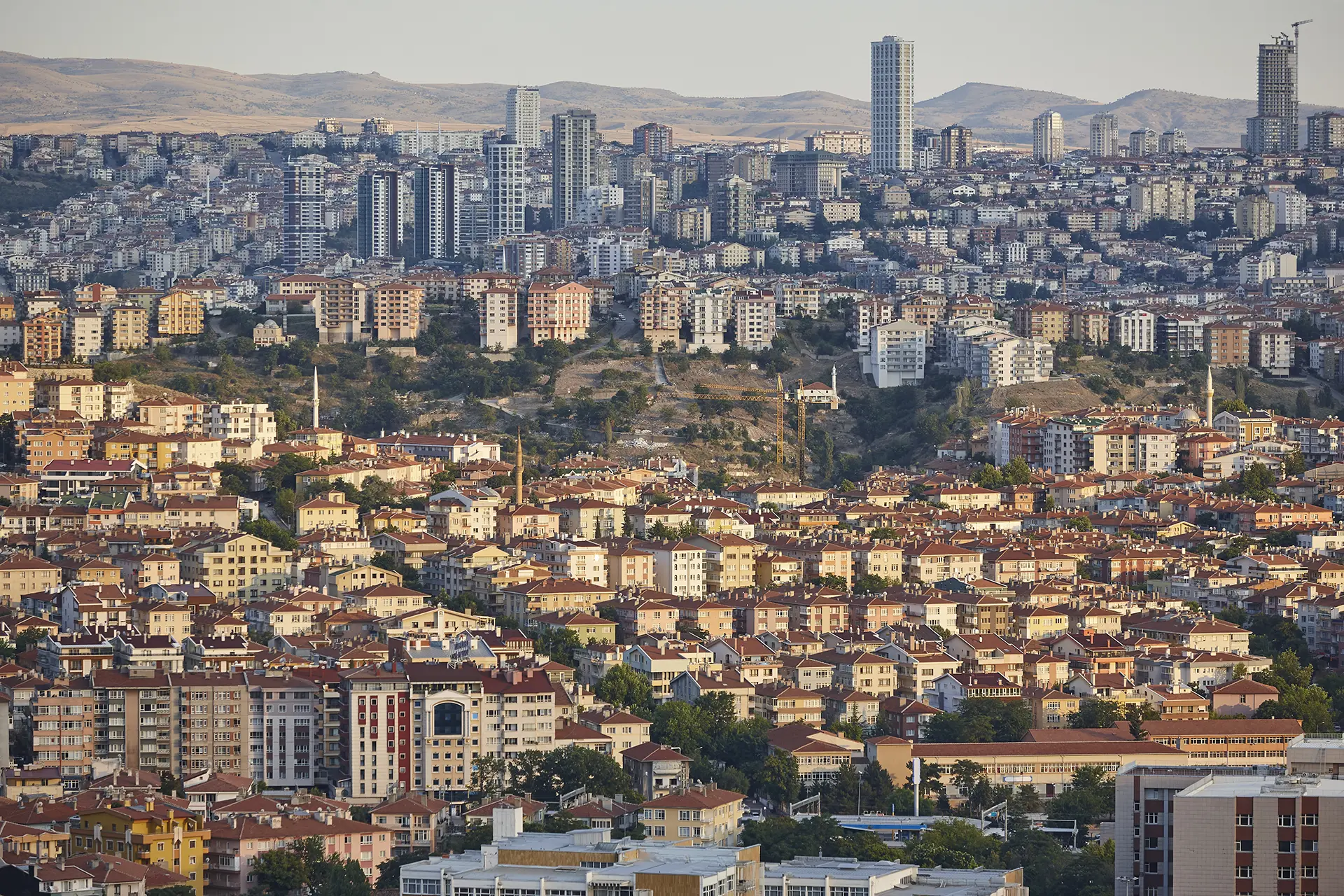Obtaining a residence permit through real estate investment in Turkey is a legal and accessible way for foreigners to live in the country. This type of residence permit is granted to individuals who purchase property that meets certain criteria set by the Turkish government.
In recent years, it has become an increasingly popular option among foreigners due to its relatively low entry threshold, attractive property prices, and the opportunity to live in a culturally rich and strategically located country. For many, it also serves as a first step toward long-term residency or even Turkish citizenship.
What is a Real Estate Residence Permit?
A Real Estate Residence Permit in Turkey is a type of short-term residence permit granted to foreign nationals who purchase property within the country. It allows the property owner and, in many cases, their immediate family members to legally reside in Turkey, typically for a period of one or two years, with the option to renew.
What makes this permit unique compared to other types of residence permits—such as those based on employment, education, or family reunification—is that it is tied specifically to property ownership. As long as the property meets the government’s minimum value requirements (and is used as a residence), the applicant may be eligible, regardless of nationality or professional status.
This path is open to a wide range of people: retirees looking for a peaceful life by the sea, digital nomads who want a base in a vibrant and affordable country, investors seeking stable rental income, or families wishing to explore life in a new cultural setting. Unlike a work permit, you don’t need a job offer. And unlike a student visa, there’s no requirement to enroll in an institution.
In short, it’s a flexible and accessible option for many foreigners looking to enjoy long-term life in Turkey.
Benefits of Getting a Residence Permit Through Real Estate

Choosing to obtain a residence permit in Turkey through real estate comes with a range of benefits that make it an attractive option for many foreigners.
- Legal right to live in Turkey:
With this permit, you gain the legal ability to reside in Turkey without needing to worry about visa runs or overstaying your tourist visa. It gives you the stability of long-term living in a country that bridges Europe and Asia. - Family inclusion:
Typically, your spouse and dependent children can also receive residence permits under the same property ownership, allowing the whole family to live together in Turkey. - Access to healthcare and services:
Once you’re a resident, you become eligible to apply for the Turkish public healthcare system or continue with private insurance. You’ll also be able to open a bank account, enroll your kids in schools, and sign contracts (like for utilities, mobile plans, etc.). - Renewal possibilities and long-term stay:
The permit is usually issued for one or two years and can be renewed as long as you still own the property and meet the criteria. This makes it an ideal option for those planning to stay long term. - Pathway to citizenship (eventually):
While the real estate residence permit doesn’t automatically lead to citizenship, it can be a step in that direction. After five years of continuous legal residency (without being absent for more than 180 days in total), you may become eligible to apply for Turkish citizenship—provided you meet the additional requirements. - Investment opportunity:
Turkey’s real estate market is dynamic and growing, especially in popular areas like Istanbul, Antalya, and Izmir. Property prices are still relatively affordable compared to many European countries, and there’s good potential for long-term appreciation or rental income.
Minimum Requirements

To be eligible for a real estate residence permit in Turkey, there are a few essential conditions that must be met. While the process is generally straightforward, it’s important to understand the official criteria to avoid delays or rejection.
Minimum property value:
As of the latest regulations, the purchased property must meet a minimum value requirement depending on the location:
-
$75,000 USD equivalent (in Turkish Lira) for properties in major cities and metropolitan areas like Istanbul, Ankara, or Antalya.
-
$50,000 USD equivalent for smaller cities or less-developed regions.
This value must be officially confirmed by a licensed property appraisal report, which you’ll need to submit during your application.
The property must be residential:
To qualify, the real estate must be categorized as a residential unit (like an apartment, villa, or house). Commercial properties typically don’t meet the criteria for this type of residence permit unless combined with business-related residency.
The applicant must be listed on the title deed (TAPU):
The property must be registered in your name as the legal owner. Joint ownership is allowed, but only the individuals listed on the deed can apply for a residence permit—unless applying as a family.
No criminal background:
Applicants should not have a serious criminal record. In some cases, you may be required to provide a criminal background check from your home country or countries you’ve resided in.
Proof of sufficient financial means:
While there is no fixed amount officially declared, you must show that you have enough financial resources to support yourself (and your family, if applicable) during your stay. A common guideline is to demonstrate monthly income of around $500–$600 per person.
Valid health insurance:
You need to have Turkish private health insurance (or later apply to join the state system) that covers the duration of your residence permit.
Meeting these minimum requirements is key to ensuring your application is approved smoothly. If even one part is missing or incorrectly submitted—especially the appraisal report or insurance—it can delay the process or lead to a rejection.
Step-by-Step Process: How to Get a Real Estate Residence Permit in Turkey

Getting a residence permit through real estate in Turkey involves a few essential steps. While the process is relatively straightforward, paying attention to the details will make everything smoother and faster. Here’s a breakdown of how it typically works:
Step 1: Find and Purchase Property
Start by selecting a residential property that meets the minimum value requirement ($75,000 or $50,000 depending on location). Make sure the property has clean legal status, no debts or restrictions, and is ready for title transfer. It’s highly recommended to work with a licensed real estate agent and lawyer.
Step 2: Obtain the Title Deed (TAPU)
After the purchase is complete, you’ll receive the TAPU—the official title deed proving ownership. This document must clearly show your name as the owner. You’ll also need to get a real estate valuation report from a certified appraiser, which confirms the property meets the required value.
Step 3: Prepare Required Documents
You’ll need to gather all necessary paperwork before submitting your application. These typically include:
-
Valid passport (notarized Turkish translation)
-
Copy of TAPU
-
Appraisal report
-
Proof of address (utility bill or rental contract if not living in the purchased property yet)
-
Proof of income or financial stability
-
Valid health insurance
-
Biometric photos
-
Application form
Step 4: Apply for Residence Permit Online
Submit your application through the official Turkish immigration website. After filling in the online form, you’ll be assigned an appointment date at the local immigration office (Göç İdaresi).
Step 5: Attend Your Appointment
Go to the local immigration office on your scheduled date with all original documents. You’ll have your fingerprints taken, documents reviewed, and possibly be asked a few questions about your stay in Turkey.
Step 6: Wait for Approval
After the appointment, your application will be processed. This can take anywhere from a few weeks to a couple of months. Once approved, your residence permit card will be mailed to your Turkish address.
Bonus Tip:
If you’re applying as a family, the main applicant (the property owner) must apply first, followed by family members under the family residence permit category using the same property.
Required Documents

To apply for a real estate residence permit in Turkey, you’ll need to prepare a set of documents that prove your identity, ownership of the property, financial stability, and intent to reside legally in the country. Some documents must be translated and notarized, and all should be up to date.
Here’s a checklist of the most commonly required documents:
1. Valid Passport
-
A copy of your passport (the page with your personal info and the page with the entry stamp/visa).
-
Must be valid for at least 6 months from the date of application.
-
Needs to be translated into Turkish and notarized.
2. Title Deed (TAPU)
-
The official proof that you own the property in Turkey.
-
Must clearly state your name as the owner.
-
Copies are acceptable for the application, but the original may be requested during the appointment.
3. Real Estate Appraisal Report
-
A mandatory report from a licensed appraiser that confirms the market value of your property.
-
Must be issued within the last 3 months and meet the minimum threshold ($75,000 or $50,000 depending on the city).
4. Proof of Address in Turkey
-
If you live in the purchased property: utility bill in your name or a registration from the local Nüfus (Population Directorate).
-
If you haven’t moved in yet: a rental agreement or a declaration of address.
5. Health Insurance
-
Private health insurance policy valid in Turkey for the entire period of your residence permit.
-
Applicants under 18 or over 65 may be exempt or use public health coverage (SGK).
6. Proof of Financial Means
-
Bank statements, pension slips, or proof of income showing you can financially support yourself and your family (around $500–600 per month per person is a good benchmark).
-
No specific income level is officially stated, but sufficient financial stability is required.
7. Biometric Photos
-
Typically 4 passport-size biometric photos.
-
Must meet Turkish photo standards: white background, neutral expression, no accessories.
8. Tax Number
-
A Turkish tax number is required for almost all official procedures, including property purchase and residence application.
-
You can get it online or at your local tax office (Vergi Dairesi).
9. Residence Permit Application Form
-
Filled out online through the e-ikamet system.
-
After submission, you’ll receive a confirmation printout and appointment details.
10. Application Fee Receipts
-
Payment slips for the government application fee and card issuance fee.
-
These are paid at a tax office before your appointment.
Having all these documents in order will greatly increase your chances of a smooth and successful application. Small errors—like missing translations or outdated reports—are common reasons for delays, so double-check everything.
Duration and Costs

When applying for a real estate residence permit in Turkey, it’s helpful to know how long the process takes and what kind of expenses to expect—both official and optional. While Turkey remains one of the more affordable countries for property-based residency, there are still some costs you’ll need to budget for.
How Long Does It Take?
-
Online application: You’ll receive an appointment date shortly after submitting your application online (usually within a few days to a couple of weeks).
-
Appointment processing: After your in-person interview at the immigration office, processing times vary depending on the city. In large cities like Istanbul or Antalya, it can take 4 to 8 weeks, while smaller towns may be faster.
-
Residence card delivery: Once approved, your residence permit card will be delivered to your Turkish address via registered mail (PTT). The total wait time from application to card delivery is usually 1–2 months.
What Are the Costs?
Here’s a rough breakdown of the typical expenses involved:
| Item | Estimated Cost (USD Equivalent) |
|---|---|
| Government application fee | $15–$25 |
| Residence card fee | $20–$30 |
| Property appraisal report | $100–$150 |
| Notarized passport translation | $20–$50 |
| Health insurance (annual) | $100–$400 (depends on age/coverage) |
| Legal/agent assistance (optional) | $300–$1000+ |
| Other admin/document fees | $50–$100 |
💡 Total estimated cost (excluding property): around $300–$700, depending on whether you use professional help.
How Long is the Permit Valid?
-
Typically issued for 1 year on the first application.
-
In some cases, especially if your health insurance and property documents are valid for longer, you might receive up to 2 years.
-
The permit can be renewed as long as you still own the property and meet the conditions.
Renewal and Extension of the Real Estate Residence Permit

One of the key advantages of the real estate residence permit in Turkey is that it can be renewed, allowing you to continue living in the country without needing to reapply from scratch each year. However, there are a few important rules and timelines to keep in mind to ensure a smooth renewal process.
When Should You Renew?
-
You can apply for renewal within 60 days before your current permit expires, but not after it has expired.
-
It’s strongly recommended to apply at least 30 days in advance to avoid any last-minute issues or visa overstays.
Requirements for Renewal
The renewal process is similar to the initial application, but a bit simpler if your situation hasn’t changed. You’ll need to submit:
-
Updated health insurance covering the new period
-
Updated proof of address (a utility bill or address registration)
-
Current TAPU showing that you still own the property
-
Proof of sufficient financial means
-
Passport and biometric photos
-
Residence permit renewal form (completed online)
-
Government fees (same as the first time)
If you still meet all the original conditions and the property is in your name, renewal is usually approved without major issues.
Do You Need to Buy a New Property?
No, you do not need to buy a new property to renew your residence permit—as long as you still own the original one that meets the minimum value and legal criteria.
If you sell the property, your permit will not be renewed, and you may lose your residency status unless you switch to another type of residence permit (e.g. family, work, or student).
What About Family Members?
If your spouse or children received their residence permits through your property ownership, they also need to renew at the same time, with similar supporting documents (plus proof of relationship like marriage or birth certificates, translated and notarized).
How Long Can You Keep Renewing?
There’s no fixed limit on how many times you can renew a short-term residence permit based on property ownership—as long as you still qualify. However, after 8 years of continuous legal residency, you may become eligible for a long-term residence permit, which doesn’t require frequent renewals.
Common Mistakes and Risks

While getting a real estate residence permit in Turkey is generally a smooth process, there are a few common pitfalls that can cause delays, rejection, or even legal complications. Knowing what to avoid can save you time, money, and a lot of stress.
1. Buying Property That Doesn’t Meet the Requirements
One of the most frequent (and costly) mistakes is purchasing a property that doesn’t qualify for a residence permit:
-
Property value is below the legal threshold ($75,000 or $50,000 depending on location).
-
Property is not registered as residential.
-
Property has legal issues (debts, shared ownership, zoning problems).
💡 Always get a licensed real estate appraisal before applying—and preferably before you buy.
2. Incomplete or Incorrect Documentation
Missing documents, incorrect translations, outdated insurance, or even a typo in your application can lead to rejection or delays.
-
Notarized translations must be done by certified translators.
-
Appraisal reports must be less than 3 months old.
-
Insurance must cover the full permit period.
💡 Double-check every document, or work with a professional if you’re unsure.
3. Applying Too Late for Renewal
Applying for renewal after your current permit expires can result in:
-
Loss of legal status
-
Fines
-
Possible deportation or entry ban
💡 Set reminders and start your renewal process at least a month in advance.
4. Using Unlicensed Agents or “Fixers”
Some applicants rely on unofficial “middlemen” who promise to “handle everything.” While a few may be well-meaning, others are unqualified—or even fraudulent.
-
Overcharging for simple services
-
Submitting fake or low-quality documents
-
Giving misleading legal advice
💡 Only work with registered lawyers, licensed real estate agents, or certified immigration consultants.
5. Selling the Property Without Understanding the Consequences
If you sell the property tied to your residence permit:
-
Your permit becomes invalid.
-
You cannot renew unless you buy another qualifying property.
-
You may need to leave the country or switch to a different type of permit.
💡 Always plan ahead if you’re thinking about selling your property.
Avoiding these mistakes can make the difference between a successful, stress-free application and a frustrating experience. A little preparation goes a long way.
FAQ – Frequently Asked Questions
🟠 Can I rent out my property while holding a residence permit?
Yes, you can. Owning property for a residence permit doesn’t stop you from renting it out to others, either short-term or long-term. However, if you plan to do short-term rentals (like Airbnb), you may need a tourism license and must follow local regulations and tax obligations.
🟠 Can I bring my family with me?
Absolutely. Your spouse and dependent children (usually under 18) can apply for family residence permits based on your property ownership. You’ll need to provide marriage and birth certificates, translated and notarized, along with proof that you can support them financially.
🟠 Does this permit allow me to work in Turkey?
No, the real estate residence permit does not grant you the right to work. If you plan to work legally in Turkey, you’ll need to apply for a separate work permit through an employer or as an entrepreneur.
🟠 Will I become a Turkish citizen by buying property?
Not automatically. However, there is a citizenship by investment program where you can become eligible for citizenship if you invest $400,000 USD or more in real estate and commit to holding it for at least 3 years. The standard residence permit through property (under that amount) can eventually lead to citizenship after 5 years of continuous residence, but it’s a separate process with more requirements.
🟠 What happens if I sell the property?
If you sell the property that your residence permit is based on, your permit may be canceled or not eligible for renewal. To keep your residency, you’ll either need to buy another qualifying property or switch to a different residence permit category.
🟠 Can I leave Turkey during my permit period?
Yes, you can travel freely in and out of the country while holding a valid residence permit. However, if you plan to apply for long-term residency or citizenship, your time spent outside Turkey is limited (typically no more than 120–180 days per year).
🟠 Can I apply for the residence permit before receiving the TAPU?
No. You must first complete the property purchase and receive the official title deed (TAPU) before applying for a residence permit. The TAPU is the main document that proves your eligibility.
🟠 How long does the process usually take?
From application to receiving your residence card, it usually takes 1 to 2 months, depending on the region and time of year. Applying in smaller cities can sometimes be faster than in busy urban areas like Istanbul.
Conclusion

Getting a residence permit in Turkey through real estate is more than just a legal formality—it’s an opportunity to start a new chapter in one of the most diverse, welcoming, and strategically located countries in the world. Whether you’re looking for a second home by the sea, a peaceful place to retire, or a long-term base for work and travel, Turkey offers a balanced mix of affordability, lifestyle, and accessibility.
The process is relatively straightforward, especially when compared to other countries. With the right property, proper documentation, and an understanding of the steps involved, many foreigners find the transition to life in Turkey surprisingly smooth.
However, as with any international move, preparation is key. Understanding the rules, working with trustworthy professionals, and avoiding common mistakes will help ensure a successful experience from the very beginning.
Whether you’re just exploring the idea or ready to take the leap, the real estate residence permit is a flexible, achievable pathway to living legally—and comfortably—in Turkey.

